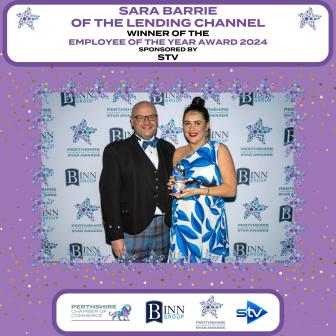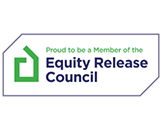How to Qualify for the Best Residential Mortgage Rates
Buying a home is an exciting milestone and one that many of us dream of achieving.
However, buying your first home can also be a daunting task due to the amount of paperwork and finances needed. To get a lower, more achievable mortgage re-payment plan, we advise looking deeper into how to achieve the best mortgage rates on the market.
Finding the best available mortgage rates is no easy task, however. It requires an in-depth understanding of how mortgages work. At The Lending Channel, we understand your challenges in qualifying for the best residential mortgage rates . Our team of expert mortgage brokers is here to guide you through the process, making it as smooth and stress-free as possible.
In this article, we will explore some essential tips and factors to help you achieve the best possible mortgage rates for your dream home.

Tips for qualifying for the best residential mortgage deals
Qualifying for the best residential mortgage rates involves several key factors that mortgage lenders consider. Understanding and addressing these factors can significantly impact the interest rate you receive.
The reminder of this article explores these tactics in more detail.
How your credit score affects your mortgage rate
Understanding your credit score is essential in the mortgage application process . Higher credit scores open doors to more favourable rates and borrowing opportunities.
But what exactly is considered a good credit score and how can you raise your score to improve your chances of obtaining a competitive mortgage rate ?
While credit score ranges may vary slightly between different credit bureaus, a score of 700 or above is generally good, while a score above 720 is excellent. If your score is below 700, you’ll want to try and improve it before applying for a mortgage so you can achieve the best rates possible.
Here are some ways you can improve your credit score:
- Register to vote: Registering to vote shows that you are a responsible citizen engaged in your community.
- Apply for a credit card and use it responsibly. This application will help you to build a credit history, which is essential for getting loans and other forms of credit.
- Use a credit rebuild card if you need better credit. These cards help people with bad credit to rebuild their credit history.
- Avoid payday loans. These loans are costly and can trap you in a cycle of debt.
- Cancel unused credit and store cards. These cards can still appear on your credit report, even if you don't use them.
- Pay your bills on time. This step is the most important thing you can do to improve your credit score.
- Check the addresses on your old bill accounts. If the addresses are incorrect, this could be causing problems with your credit report.
Lenders want to see that you have a history of responsible borrowing before they approve you for a mortgage. They cannot know how you manage your finances if you have no debt on your credit report. A lack of credit history can be just as much of a red flag as poor credit history.
Afterall, lenders are all about managing risk; the more reliable you seem, the better.
The impact of your debt-to-income ratio on your mortgage rate
A debt-to-income ratio (DTI) measures how much debt you have relative to your income. It divides your total monthly debt payments by your gross monthly income.
DTI is used to assess your ability to repay a loan . A lower DTI shows that you have more disposable income to make loan payments, which makes you a less risky borrower.
What is a good debt-to-income ratio?
A good debt-to-income (DTI) ratio is around 36% or lower, meaning your monthly debt payments, including the mortgage, should be at most 36% of your gross monthly income. At the same time, it is the opposite of a bad debt-income ratio, where lenders find it a risky borrowing situation and will affects mortgage eligibility.
If you are looking to lower your DTI and enhance your mortgage eligibility, The Lending Channel team can help you explore strategies in managing your debts.
.png)
How your down payment affects your mortgage rate
The down payment you make when purchasing a property influences your mortgage rate.
A down payment is an upfront payment made by the buyer toward the property's purchase prepayment. A larger down payment can significantly impact your mortgage rate and reduce monthly payments. While a 5% down payment can be sufficient for some mortgages, a larger one can help you secure better interest rates.
The amount of down payment required for a mortgage depends on the type of loan you are getting and the lender you are working with.
Below are the mortgage options that can also affect your mortgage rate:
Interest Only Residential Mortgage
This type of mortgage only pays the interest on the loan amount each month. You do not pay off any of the principal amount borrowed, which means your monthly payments are lower than the standard repayment mortgage. However, you will still owe the total amount borrowed at the end of the mortgage term.
Anyone planning for an Interest Only Mortgage should discuss the risks and benefits with a professional mortgage broker, as it may not suit everyone. Typically, borrowers who choose an interest-only mortgage pay off the loan at the end of the term with their investment or savings plan in place.
Fixed-Rate Mortgage
This type of mortgage is where you pay a fixed interest rate for a set period. Depending on your lender, this period can vary from 2 to 10 years. This type is beneficial for people who want a predictable payment each month, making it easier to budget and plan finances ahead of time.
Variable Rate Mortgage
Unlike a fixed-rate mortgage, a variable mortgage depends on the lender's discretion. You will pay what is known as a lender's standard variable rate (SVR) of interest, meaning the interest rate will change based on the current economic situation and the lending market.
This type can be suitable for those who want to take advantage of the good economic situation but can also be risky because they can be unpredictable. When the interest rates increase, your monthly payments will also increase. This increase can be a problem if you are on a tight budget.
Tracker Mortgage
This mortgage is similar to a variable-rate mortgage. The interest you pay on a Tracker mortgage will vary monthly. However, your pay will depend on the Bank of England base rate. Tracker mortgages track the base rate and always stay a set percentage above it. This track means The Bank of England base rate will significantly impact the changes in monthly repayments you are expected to make on your mortgage, making it difficult to know how much you'll be paying in advance.
The downpayment amount to get the best rate will depend on your financial situation. Consider your income, debt, and savings when making this decision.
Other Factors that Affect Your Residential Mortgage Rate
In addition to credit score, DTI ratio, and down payment, various other factors can influence your mortgage rate. First time buyers, remortgaging, market conditions and the offerings of different lenders are essential considerations that lenders will analyse when offering you a mortgage product.
Our team is always updated on the latest trends to help you find the best mortgage rates possible for your budget and circumstance. As you may know, interest rates will vary between different lenders and banks, so having a professional to guide you towards the best current offers can be hugely beneficial.
If you choose to partner with The Lending Channel, we will research competitive interest rates for your residential mortgage to help you find the best deal on the market, meaning lower monthly costs and more manageable mortgage re-payments.
To quickly get an idea about how much you are likely able to borrow, use our basic mortgage calculator and then follow up with any questions or concerns you may have.

Secure the best residential mortgage rates with The Lending Channel
Securing the best residential mortgage rate requires careful consideration of various factors. There’s a lot to consider and lenders will be quick to analyse your full situation before offering you the best rates. However, as we have just discovered, there are many tactics you can implement to give yourself the best chance possible of achieving favourable rates.
The team at The Lending Channel is here to assist you throughout the process with our non-bias, free mortgage advice. From assessing your current financial situation to finding the most favourable rates that match your goals and budget, we are here to help.
Contact us today for help in achieving incredible residential mortgage rates that will turn your dream home a reality.





.jpg)

.png)
























